News

Jul 02, 2025
Eight graduate students receive U.S. National Science Foundation fellowships
Eight Penn State graduate students received U.S. National Science Foundation (NSF) Graduate Research Fellowships for the 2025-26 academic year.
Full Article
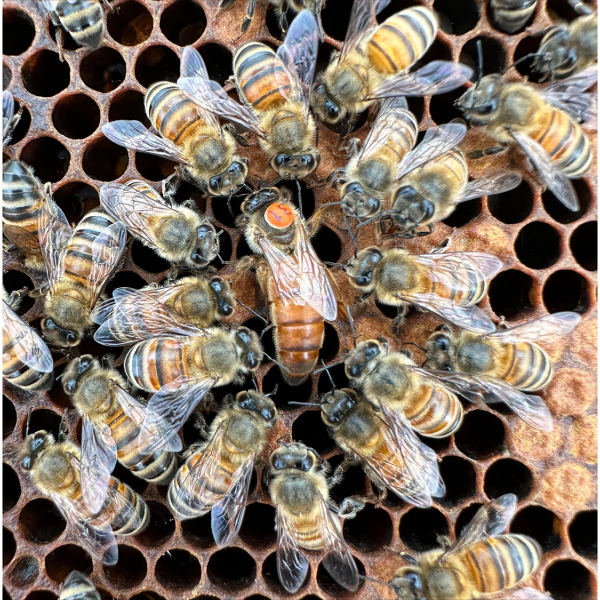
Jun 20, 2025
How a genetic tug-of-war decides the fate of a honey bee
Despite having identical genetic instructions, female honey bee larvae can develop into either long-lived reproductive queens or short-lived sterile workers who help rear their sisters rather than laying their own eggs. Now, an interdisciplinary team led by researchers at Penn State has uncovered the molecular mechanisms that control how the conflict between genes inherited from the father and the mother determine the larva’s fate.
Full Article
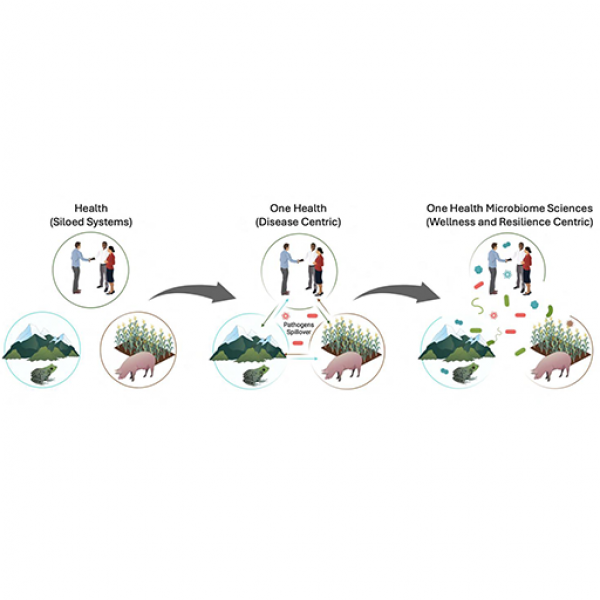
Jun 11, 2025
Q&A: Unifying the microbiome sciences for global health and sustainability
Recently, members of Penn State's One Health Microbiome Center published an article in the American Society for Microbiology’s flagship journal, mBio. In this Q&A, a few of the paper’s authors discussed how the center is leading the charge to breakdown traditional disciplinary silos and expand the One Health focus to include more than just pathogenic microbial threats.
Full Article
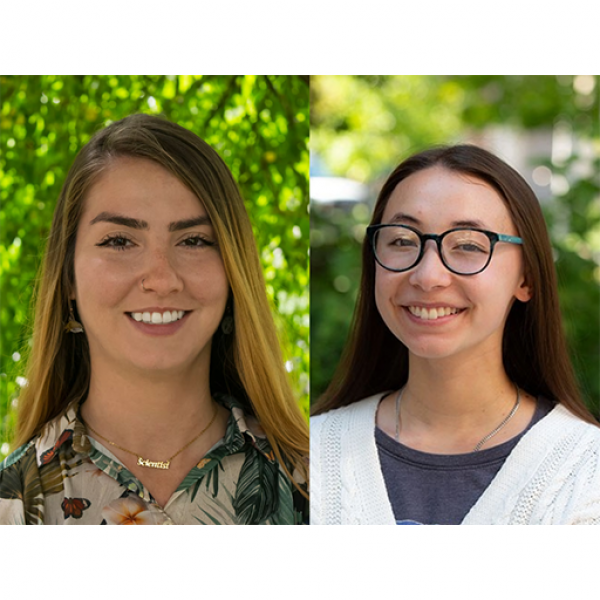
Jun 09, 2025
Two Penn State doctoral students selected for industry internship in Germany
The One Health Microbiome Center (OHMC) in the Huck Institutes of the Life Sciences at Penn State is sending two doctoral students to Hilden, Germany, for a seven-week industry internship at the headquarters of QIAGEN, a global leader in biotechnology for life sciences diagnostics, equipment and research.
Full Article

Jun 04, 2025
$2.9M grant funds study on long-term effects adolescent binge drinking
An interdisciplinary team of researchers at Penn State will use a new five-year, $2,900,000 grant to investigate the long-term effects of excess alcohol drinking during adolescence.
Full Article
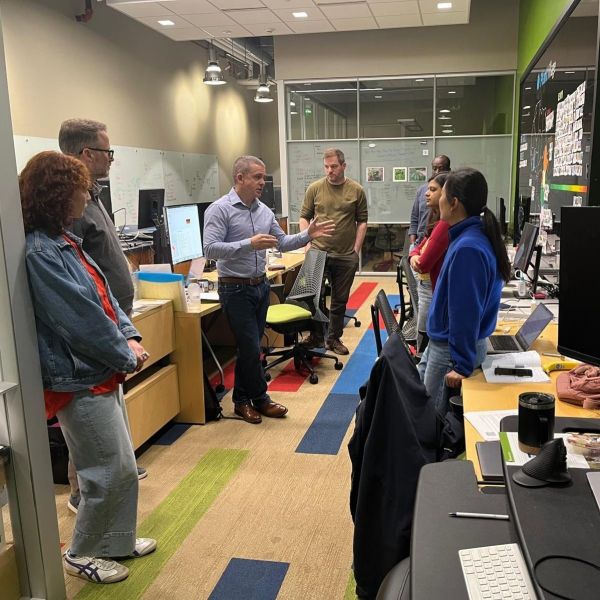
Jun 03, 2025
Penn State’s Youth Food Lab attends UN Science, Technology, Innovation forum
Penn State’s College of Agricultural Sciences was represented on the global stage as faculty and students participated in the United Nations’ 10th Multi-stakeholder Forum on Science, Technology and Innovation for the Sustainable Development Goals, held at U.N. headquarters in New York City earlier this month.
Full Article

May 29, 2025
Biology professor, Huck associate operations director to retire
After a decade of service to the Huck Institutes of the Life Sciences and a distinguished academic career spanning four decades, James Marden, professor of biology and associate director of operations, will retire from Penn State at the end of June.
Full Article
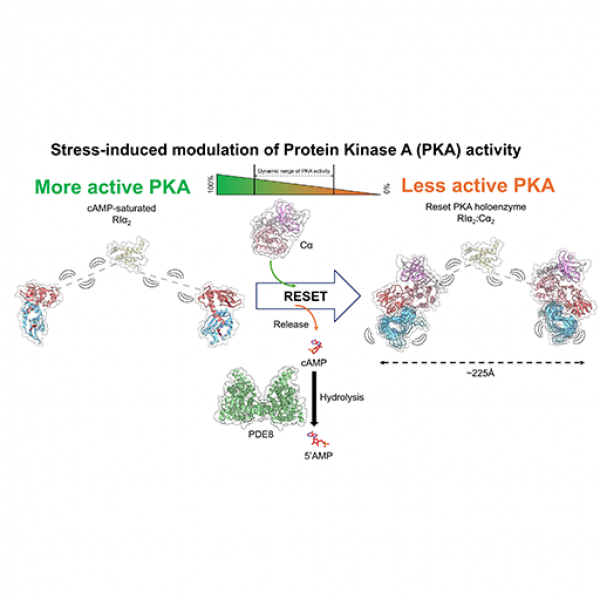
May 29, 2025
Resetting the fight-or-flight response
New study reveals mechanism responsible for resetting key molecular cycle involved in response to stress and starvation.
Full Article
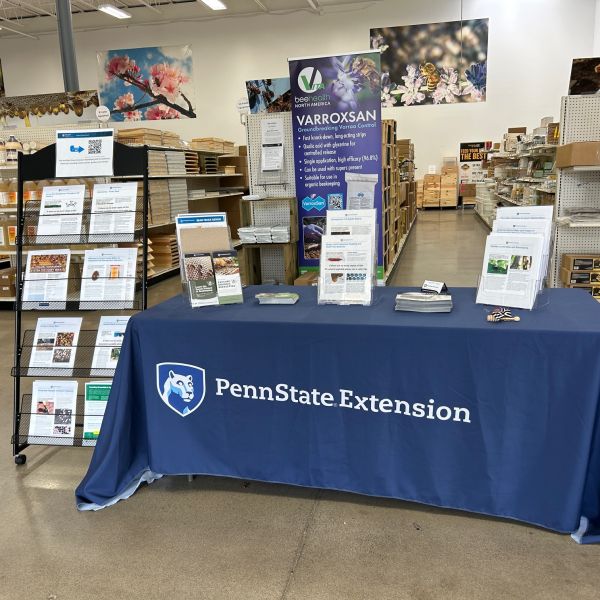
May 23, 2025
Penn State Extension expands beekeeping education offerings
With growing challenges facing honey bee health, Penn State Extension is working to equip beekeepers with science-based resources to help them raise resilient colonies — from beginner publications to advanced online training in breeding techniques.
Full Article

May 08, 2025
Biological physicist Réka Albert elected to National Academy of Sciences
Réka Albert, Evan Pugh University Professor and professor of physics and biology at Penn State, has been elected to the National Academy of Sciences.
Full Article